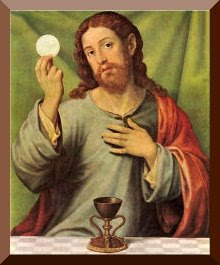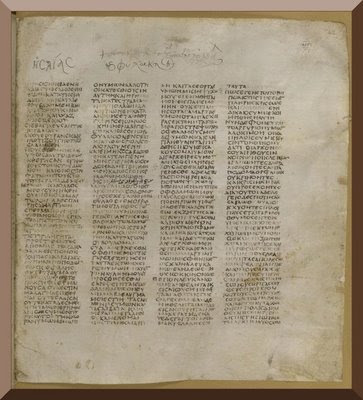
Awhile back, I read a blog entry from a Catholic man, who was not happy with converts to Catholicism. He felt that we are overzealous, far too eager to discuss our faith, and even far too eager to share it. He more or less said that he did not need any convert to tell him how to be Catholic and that we need to realize that we don't know everything about Catholicism.
Being a convert myself, I was, to be honest, somewhat hurt, and yes, offended that this man felt that the best thing any convert can do, is to just shut our mouths and not speak unless spoken to. I began to wonder why this man felt this way, and I wondered if maybe he was right and that we all go overboard in our discussing and sharing our faith.
Maybe this man felt he knows everything he needs or wants to know about Catholicism and he does not want or need some neophyte telling him about it. Then again, he could possibly be intimidated if a convert has spoken of something that he did not know.
I became very aware of my own discussions and sharing of the faith and found that many times my discussions were occurring more often with non-Catholics as opposed to “cradle Catholics”. I was avoiding discussing the faith with other Catholics unless like me, they were also converts. To be honest, I found more openness and receptivity among the neophytes like myself, and yes, even among the non-Catholics with whom I spoke and shared the faith. Many (not a majority though) of the life long Catholics did not want to discuss the faith, did not know anything about a particular subject, or said they only discuss the faith with their priest or spiritual adviser.
Now, I will be the first one to tell you that I do not know everything about the Catholic faith nor have I ever claimed to. I try to have these discussions, and this sharing with other Catholics so that I may learn, and so that I may grow in the faith. Sometimes, many times in fact, some of those “cradle Catholics” have gone away having learned something themselves.
The truth is, no matter if we are converts or “cradle Catholics”, we all have something to learn. God gives us reason and understanding through the Power of the Holy Spirit, as we are able to grasp it. No matter whom we are, no matter what our station in life, if we think or imagine that we have learned all that there is to know about Jesus Christ and His one true Church, then we are mistaken. There is always something new to learn, always something new revealed to us by the Grace of God. If we begin to think, if we become so arrogant to think we know all there is to know, and that we can learn no more, then we shortchange our selves, and we have rejected the Power of Christ through the Holy Spirit.
So please try to be patient with those of us who are converts to the faith, who are learning, who love what we are learning, and love Christ and His Church. Think of how Christ Himself said:
MATTHEW 18:2-5: And Jesus calling unto him a little child, set him in the midst of them, and said: Amen I say to you, unless you be converted, and become as little children, you shall not enter into the kingdom of heaven. Whosoever therefore shall humble himself as this little child, he is the greater in the kingdom of heaven. And he that shall receive one such little child in my name, receives me.
Yes, we are like little children. Those of you who have little children, those who remember when your own children were little, or when you see your own little grandchildren now, think of those times and their excitement when they have discovered, or will discover something new. Think of those times when something or someone they loved or love now excites them. That is what we converts are today. We are like little children, who have found something new, that we love and that excites us. We are like little children who just have to share something new. That excitement, that love, is the love we have for Christ and His Church. Do not belittle us for it; do not think that we are overzealous, or overbearing. That is not what we mean to convey. Understand that we are striving to learn, we are striving to grow, and like little children, we need you to help us, and enrich our growth.
When you look at the history of the Church, from the time of its founding until the present day, many, many illustrious converts helped to build up and grow the Church. I don't know about you, but I think we converts are in some good company. I came into the Church five years ago, and I still have that hunger to know all that I can, and that excitement that still urges me to share. I only pray that what we do here, helps the building up.
Copyright © 2009 Steve Smith. All Rights Reserved.
Religion
Church
Roman Catholic
Roman Catholic Church
Catholic Church
Catholic Converts
Catholic Blogs


